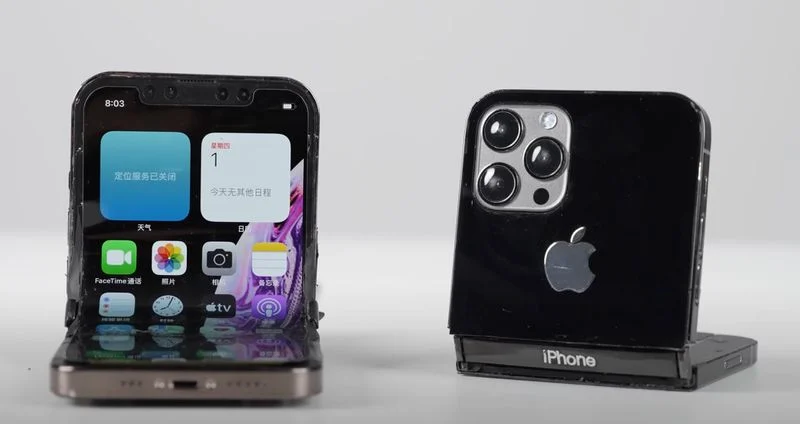Foldable iPhone Could Arrive in 2027 or Be Postponed Indefinitely
03/29/2024
2210

Apple's proposed launch schedule for its first foldable iPhone has been delayed until 2027 due to technical challenges, claims a report out of Korea.
According to Alpha Biz (via DigiTimes), Apple executives have adjusted the launch schedule for the foldable iPhone from the fourth quarter of 2026 to the first quarter of 2027 following issues with the acquisition of parts, including foldable displays that meet its high standards.
Apple is still in the early stages of developing two foldable smartphones, according to The Information. The report said that the two iPhone prototypes fold widthwise like a clamshell. More recently, Samsung Securities claimed that Apple's first foldable iPhone will feature a 6-inch external display and an 8-inch main display.
Meanwhile, Korean outlet The Elec last month reported that Apple is also considering launching a 7- to 8-inch device that could ultimately replace the 8.3-inch iPad mini.
Despite the rumors, however, there is increasing skepticism among analysts over whether Apple will abandon its foldable phone in the near term because the company is concerned that existing foldable technology has not yet matured in such a way that would enable it to realize the kind of next-generation application its engineers and designers have in mind.
Only last month a Chinese rumor claimed that Apple had suspended its development of a foldable iPhone after supplier displays failed to pass the company's own stringent testing standards. Apple is said to have been testing rival foldable phones since 2016 as part of its research and development process into foldable devices.
In one cited case, one of the latest folding panels made by Samsung reportedly "broke down after a few days" under Apple's rigorous internal testing, which allegedly caused Apple to put the entire project on ice for the foreseeable future.
The company is seemingly struggling to eliminate the crease that forms in the middle of a display due to repeated folding, and is still working out a design for a hinge that allows the display to lie totally flat, without a bump or dip in the middle. Apple has also been looking at filling panels with polymer materials such as silicone or acrylate to reduce light reflection issues.
Source: Macrumors












